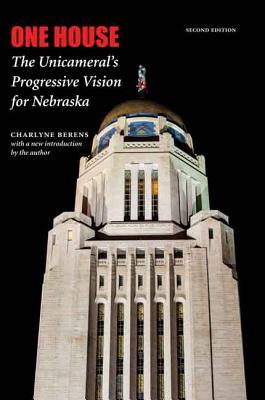When Nebraskans voted to trade in their bicameral, partisan legislature for a one-house, nonpartisan body in 1934, it was a revolutionary decision. George Norris, a U.S. senator from Nebraska, argued that the new institution would be more open, efficient, responsible, and responsive to the people it was meant to serve. An ardent progressive, Norris convinced his fellow Nebraskans that a nonpartisan, unicameral legislature would take power from the elites and return it to the people. One House examines the forces at work behind the unicameral's creation and chronicles the lawmakers' struggles to remain true to the populist, progressive vision of its founders and the people of Nebraska.
Using historical research, surveys of Nebraskans, and in-depth interviews with senators and legislative observers, Charlyne Berens examines whether the promises that Norris and his fellow unicameral promoters made have held up over the years. The one-house legislature remains a unique experiment in American democracy as well as a powerful symbol of Nebraskans' identity. In a new introduction for this second edition, Berens discusses the recent addition of term limits.
